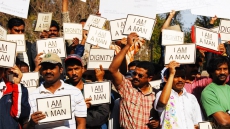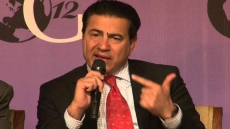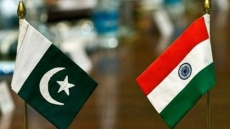China's Dowager Empress Cixi has been long reviled as a despotic ruler who rose to power by harem intrigue, but it was she who transformed a medieval country into a modern nation, gave rights to citizens especially women and opened and facilitated China's engagement with the world for its own benefit, says a Chinese author.
"Unfortunately, her contribution has not been acknowledged as much as Deng Xiaoping who also opened the country to the West," said writer Jung Chang at a session on the opening day of the Jaipur Literature Festival Wednesday.
Sketching out the career of this remarkable woman who was at the helm of China for the better part of half a century, Jung, author of "Empress Dowager Cixi: The Concubine Who Launched Modern China", said Cixi was born in 1835 and at the age of 16, chosen as a concubine to the Xianfeng Emperor (reigned 1850-61).
Originally of the sixth rank, she rose up on the birth of a son in 1856 and eventually was only second to the empress.
She took power in 1861 after the death of the heart-broken emperor following an Anglo-French force's advance to then Peking and destruction of the Summer Palace.
In alliance with the empress, she slowly forced out the eight regents and the two women took over power.
But Cixi's coup was popular as she was for opening China to foreign powers and learning ways of the West, said Jung.
Chinese were sent abroad to study, the army and navy were reorganised and the country got benefit of new inventions and symbols - even its first-ever national flag, she said.
"She emancipated woman and banned the barbaric custom of feet-binding, which was not just binding of woman's feet to keep them small and dainty, but crushing the four smaller toes under a stone and then binding them to the bones could not knit back," said Jung, adding that when she grew, the history that they studied told them that the Communist rulers took this step!
Jung, who has also written a biography of Mao Zedong (for which she and her husband scoured archives including in Moscow, interviewed the Dalai Lama and several associates of Jawaharlal Nehru), noted that the press was freer in Cixi's period then under Mao - during whose rule she and her own family had also suffered, especially during the "Cultural Revolution".
In 1872, when her son came of age, Cixi withdrew from power but as he proved incompetent and died within two years, she was back as the power behind the throne, said Chang.
This time, she adopted her nephew who became the next emperor, but she was not a very good parent, and the new titular ruler grew more close to his tutor who was extremely xenophobic.
"It was this which eventually led to the Boxer Rebellion (or the Society of Harmonious Fists) against Western interests and symbols, especially missionaries. Cixi initially favoured the rebels but later repented and apologised after returning to the imperial capital after fleeing as armies of eight nations landed and attacked," said Jung.
Cixi, however, did not relax the rigid court etiquette - though becoming the first Chinese ruler to respond to people's greetings and be seen by them - and therefore never rode a motor car she had been gifted as the driver could not drive it standing or kneeling but would sitting in her presence, quipped Jung.
Cixi, recognising the rulers were Manchus comprising only one percent of China's population while the majority Han Chinese were chafing, planned to transform her rule into a constitutional monarchy, but died in 1908 before the interim preparation period was to begin, she added, noting China's modern history might have been different if her plans had come to fruition.
"At the same time, Cixi was mindful of Chinese culture. For quite some time, she was not open to the idea of railways because their construction would disturb tombs (important for the ancestor-worshipping Chinese)," she noted.
Jung said her view of Cixi was drawn on extensive research.
"In the Chinese archives, there are 10 million documents on her reign testifying to her activities and my book is drawn on these," she said.





